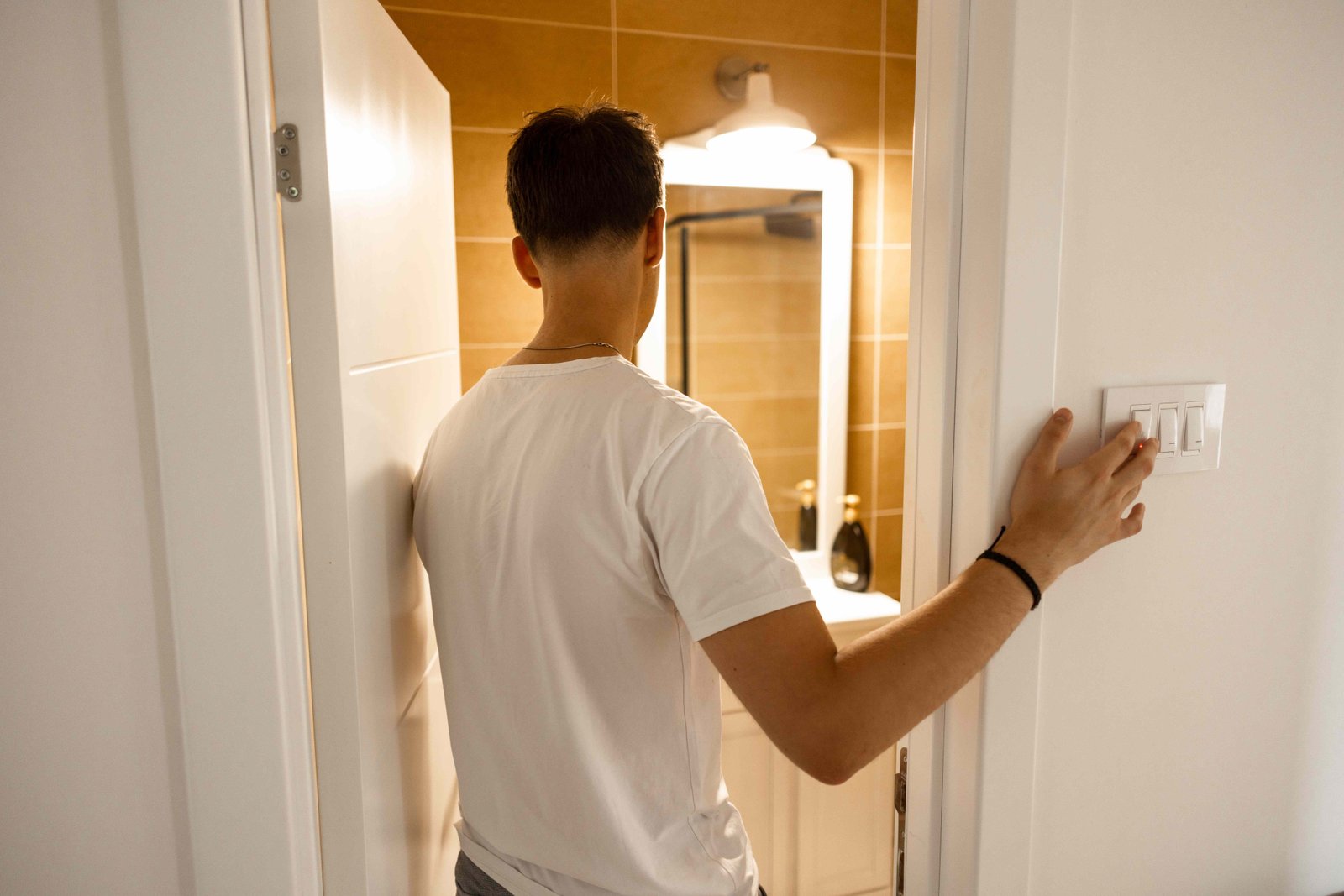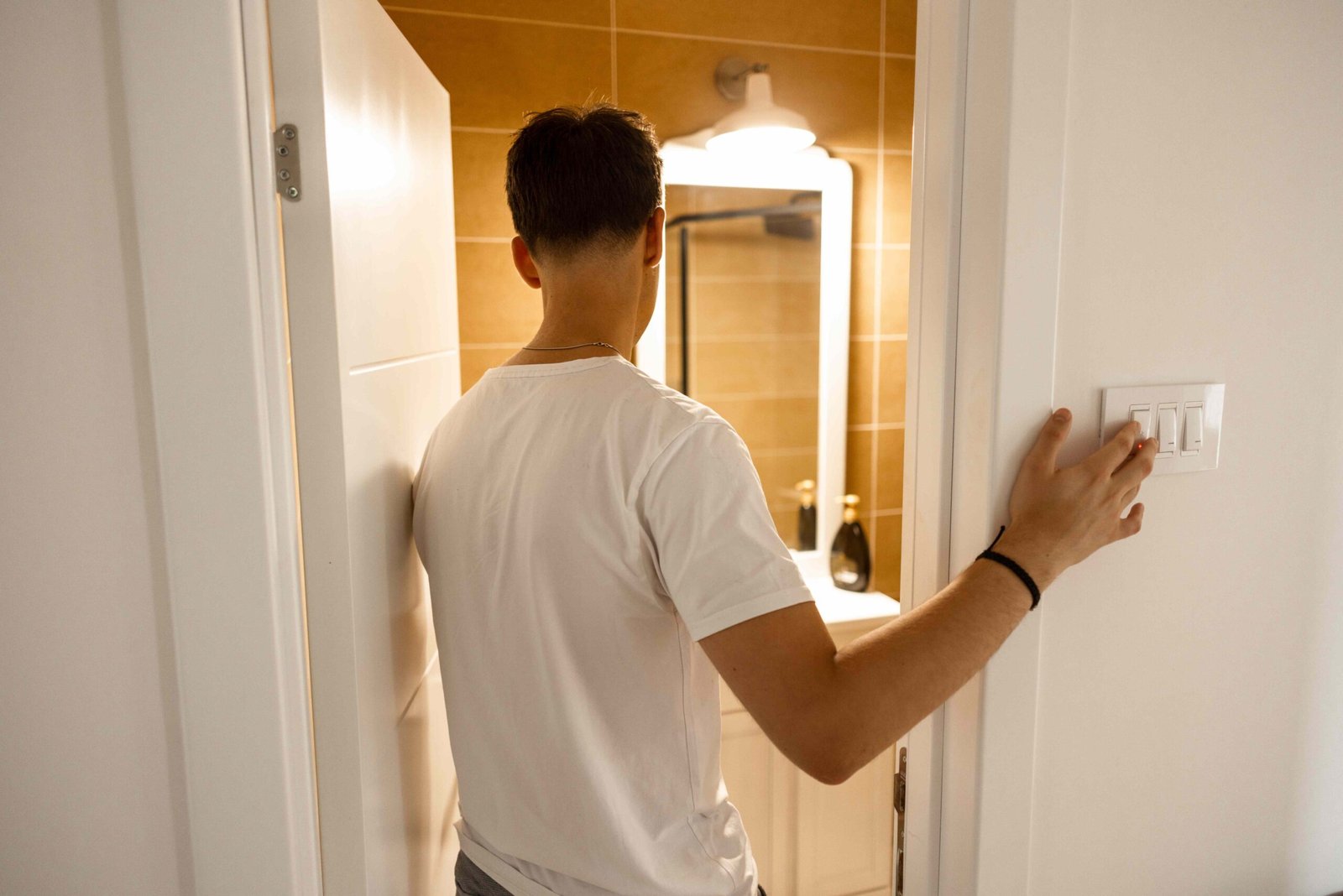
Nervous poop is a term for the sudden urge to have a bowel movement when you feel anxious, stressed, or scared. It’s not a medical diagnosis, but a common symptom of your body’s stress response.
Nervous poop typically feels like an urgent need to go to the bathroom when you feel anxious, nervous, or emotionally overwhelmed. You might feel abdominal cramping or discomfort followed by an immediate need to use the bathroom. This urgency can feel overwhelming and difficult to control.
Other symptoms include:
- Loose or watery stools (diarrhea)
- Multiple bowel movements in a short time
- Butterflies in your stomach
- Churning or gurgling feeling in your intestines
Your brain and gut are connected through what scientists call the gut-brain axis. This connection is why emotions like stress and anxiety can affect your digestive system and trigger physical symptoms like diarrhea and abdominal cramping.
Stress Response
Situations like public speaking, job interviews, and other events that may make you nervous are common triggers for anxiety and nervous poops. When you’re anxious or stressed, your body enters fight-or-flight mode.
This natural stress response triggers the release of stress hormones, resulting in physical changes that impact your digestive system.
For example, activity in your stomach and small intestines slows down, and the muscles around your large intestine contract. This can lead to symptoms like abdominal cramping and diarrhea.
Irritable Bowel Syndrome
Irritable bowel syndrome (IBS) is a common digestive disorder affecting 10-15% of adults in the United States.
Many people with IBS have visceral hypersensitivity, which means their digestive system is more sensitive to pain and mood changes. Visceral hypersensitivity makes it easier for stress and anxiety to trigger symptoms.
With IBS, you might notice that stressful situations cause more frequent or urgent bowel movements.
Anxiety Disorders
People with anxiety disorders often have heightened sensitivity to physical sensations. This can make them more aware of digestive discomfort and create a cycle where anxiety triggers gut symptoms. Frequent or prolonged anxiety can lead to regular bouts of diarrhea.
It can also disrupt your gut microbiome, the bacteria and microbes in the digestive tract. This imbalance may interfere with how your body digests food and can contribute to bowel problems, especially during periods of high stress.
Enteric Nervous System Sensitivity
Your gut contains a neural network called the enteric nervous system (ENS), or sometimes called the “second brain.” This system contains millions of neurons that regulate digestion.
Some people have a more sensitive ENS that reacts strongly to stress signals from their brain. This may trigger your intestines to contract and move your stool rapidly through the large intestine. If you have a sensitive ENS, even mild anxiety might trigger nervous poops.
Most of the time, nervous poop is temporary and manageable without medical care. Consider seeing a healthcare provider if you experience:
- Frequent diarrhea or other bowel symptoms or changes
- Symptoms interfering with your daily life, including work or social events
- Severe abdominal pain
- Fever
- Black and tarry stools
- Bloody stools
- Unintended weight loss
A healthcare provider can evaluate your symptoms and refer you to a gastroenterologist (a specialist in digestive health) if necessary. During your appointment, the healthcare provider may perform a physical examination, order blood tests to check for inflammation or other issues, and request a stool sample for testing.
Treatment for nervous poop focuses on managing anxiety and relieving digestive symptoms.
Stress Management Techniques
Finding ways to manage stress and anxiety can help calm your nervous system and may prevent symptoms like nervous poop before they start. Try these strategies:
- Deep breathing exercises: Slow, diaphragmatic breathing helps activate your body’s relaxation response and calm the digestive system.
- Meditation and mindfulness: A regular mindfulness or meditation practice can help improve your emotional regulation, ease anxiety, and reduce the frequency of nervous poops.
- Physical activity: Exercise helps balance stress hormones like cortisol and supports healthy digestion. Regular physical activity, such as a daily walk, may help reduce anxiety and improve mood.
- Psychotherapy: Working with a mental health professional may be helpful if anxiety regularly interferes with your daily life, including causing frequent nervous poops. Cognitive behavioral therapy, exposure therapy, and supportive talk therapy may all be helpful.
Dietary Adjustments
Making minor dietary adjustments may reduce the likelihood of nervous poop during high-stress situations.
- Eat bland foods: When you’re nervous or stressed, choosing low-fat, low-fiber foods like white rice, toast, bananas, and applesauce can be more gentle on your digestive system.
- Stay hydrated: Drinking water with added electrolytes can help you stay balanced and avoid dehydration if you have diarrhea from nervous pooping.
- Limit caffeine and alcohol: Caffeine and alcohol can affect your digestive system and worsen anxiety symptoms. Cutting back, especially before stressful events, can help lower your risk of needing to poop when you’re nervous.
Medication
If you have an anxiety disorder or a digestive condition that causes frequent nervous poops, a healthcare provider may prescribe medications, such as anti-anxiety drugs, to control your symptoms.
You may not be able to prevent every episode of nervous poop, but building habits that support your mental and digestive health can make a difference over time. Strategies for treating nervous poops, like managing stress and avoiding foods and drinks that can worsen your symptoms, are also key for prevention.
Keep track of patterns. A symptom journal can help you spot connections between specific triggers, meals, or stressful events and your symptoms. Identifying your triggers can help you make minor adjustments that ease anxiety and digestive symptoms.
Nervous pooping is a common response to stress and anxiety. Your body’s stress response can trigger diarrhea or the urgent feeling that you need to poop. Reducing stress levels and finding ways to manage anxiety can usually help ease or prevent nervous poops. It may also help to adjust your diet, eat bland foods, and avoid caffeine in high-stress situations.






